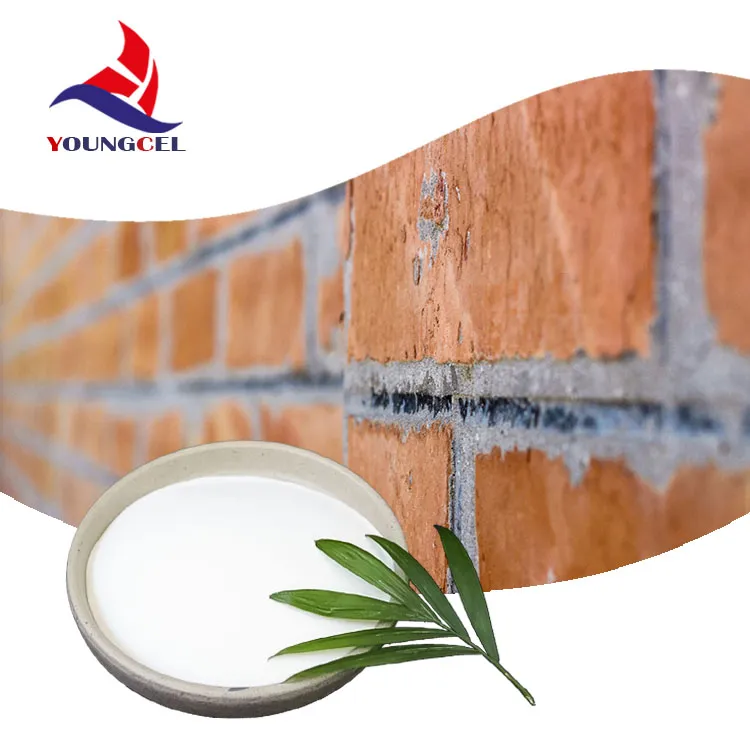Understanding RDP for Ceramic Tile Adhesive A Comprehensive Overview
In the world of construction and interior design, adhesive products play a crucial role in ensuring the successful application of materials such as tiles. Among these adhesives, ceramic tile adhesives stand out for their durability, strength, and versatility. A significant component that enhances the performance of tile adhesives is a substance known as Redispersible Polymer Powder (RDP). Understanding RDP, its properties, and its benefits can be invaluable for professionals in the field of construction.
What is RDP?
Redispersible Polymer Powder (RDP) is a fine powder made from synthetic polymers that can be redispersed in water after being dried. These powders are derived from latex emulsions. When mixed with water, RDP forms a film that acts as a bonding agent, enhancing the overall performance of the adhesive. RDP is commonly used in various applications, including tile adhesives, as it significantly improves the adhesive's flexural strength, adhesion, and water resistance.
Properties of RDP
RDP is characterized by several key properties that contribute to its effectiveness in ceramic tile adhesives
1. Improved Adhesion RDP enhances the adhesion of tile adhesives to various substrates, ensuring strong bonds between tiles and surfaces. This attribute is vital in preventing tile detachment over time.
2. Flexibility and Elasticity The addition of RDP allows the adhesive to retain flexibility, which helps to accommodate movements caused by thermal expansion and contraction in buildings. This flexibility significantly reduces the risk of cracks in tiles.
3. Water Resistance RDP increases the water resistance of tile adhesives, making them suitable for wet applications such as bathrooms and kitchens. The ability to repel water protects the bonding layer and enhances long-term durability.
rdp for ceramic tile adhesive

5. Enhancement of Open Time The use of RDP extends the open time of tile adhesives, allowing installers more time to position tiles before the adhesive sets. This flexibility is particularly beneficial for large-scale projects.
Benefits of Using RDP in Ceramic Tile Adhesive
The incorporation of RDP in ceramic tile adhesive formulations offers several advantages
1. Increased Durability One of the primary benefits of RDP is the increased durability of the adhesive. With enhanced water resistance and flexibility, RDP-modified adhesives have a longer lifespan, reducing the need for repairs or replacements.
2. Versatility in Application RDP can be used in various adhesive formulations tailored for different conditions, including floor and wall tiles, non-absorbent materials, and internal or external applications.
3. Cost-Effectiveness By improving the performance of tile adhesives, RDP reduces the risk of failures during installation. This results in cost savings in terms of labor and materials over the long term.
4. Environmental Considerations Many RDP products are formulated to have low volatile organic compounds (VOCs), making them environmentally friendly options for construction projects.
5. Ease of Use RDP-enhanced adhesives are easy to mix, apply, and clean up, making them user-friendly for both professional tile layers and DIY enthusiasts.
Conclusion
In conclusion, Redispersible Polymer Powder is a valuable ingredient in ceramic tile adhesive formulations. Its contributions towards improved adhesion, flexibility, water resistance, and overall durability make it an essential component in modern construction practices. By understanding the role of RDP, professionals in the industry can make informed decisions that lead to higher quality tiling installations, ultimately enhancing the beauty and longevity of tiled surfaces in homes and businesses alike. Whether you're a contractor, architect, or homeowner, recognizing the importance of RDP in tile adhesives is crucial for achieving successful and enduring results in your projects.
-
Rdp Powder: Key Considerations for Wholesalers in the Building Materials IndustryNewsJul.08,2025
-
Key Considerations for Wholesalers: Navigating the World of Hpmc - Based ProductsNewsJul.08,2025
-
Hpmc Detergent: Key Considerations for WholesalersNewsJul.08,2025
-
Key Considerations for Wholesalers: China Hpmc For Tile Adhesive, Coating Additives, Concrete Additives, and MoreNewsJul.08,2025
-
Crucial Considerations for Wholesalers: Navigating the World of Construction MaterialsNewsJul.08,2025
-
Key Considerations for Wholesalers Sourcing Additive For Cement, Additive For Concrete, Additive For Putty from Additive Manufacturer Shijiazhuang Gaocheng District Yongfeng Cellulose Co., Ltd.NewsJul.08,2025




